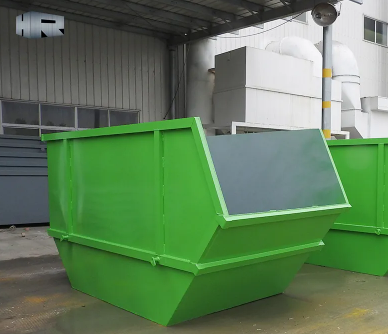
When utilizing skip bins for waste disposal, it's crucial to adhere to certain guidelines and precautions to ensure safe, efficient, and eco-friendly operations. The following are some key considerations and precautions to keep in mind:
1. Permit Requirements
Check Local Regulations: Before renting a skip bin, consult with your local council or authorities to determine if a permit is required for placement on public property or residential streets.
Permit Application: If a permit is necessary, apply in advance and ensure all necessary fees are paid.
2. Placement and Access
Safe Location: Place the skip bin in a safe and accessible location, ensuring it does not obstruct traffic, pedestrians, or cause any hazards.
Surface Stability: Ensure the ground beneath the skip bin is stable and level to prevent tipping or damage to the bin or surrounding area.
Space for Delivery and Pickup: Allow sufficient space for the skip bin delivery truck to maneuver, ensuring easy access for both delivery and pickup.
3. Weight and Load Capacity
Load Limits: Be aware of the skip bin's maximum weight capacity and do not exceed it. Overloading can lead to accidents, fines, and additional charges.
Even Distribution: Load the skip bin evenly to maintain stability and prevent damage to the bin or truck during transportation.
4. Prohibited Items
Hazardous Materials: Do not dispose of hazardous, toxic, flammable, or explosive materials in skip bins. This includes chemicals, batteries, paints, and asbestos.
Liquid Waste: Avoid placing liquid waste in skip bins, as it can lead to spillage, contamination, and weight issues.
Electronic Waste: Special arrangements may be required for electronic waste (e-waste) disposal. Check with your skip bin provider for guidance.
5. Secure Lids and Locks
Keep Lids Closed: Ensure the skip bin's lid is closed securely to prevent animals, children, or unauthorized access.
Locks: If provided, use locks to secure the skip bin during non-operational hours to prevent tampering or theft.
6. Booking and Duration
Advance Booking: Book your skip bin well in advance to ensure availability, especially during peak seasons or busy periods.
Duration: Agree on a clear hire duration with your provider and ensure you return the skip bin on time to avoid additional charges.
7. Environmental Considerations
Recycling: Sort and separate recyclable materials from general waste to reduce landfill and promote sustainability.
Eco-Friendly Practices: Choose an eco-friendly skip bin provider that offers recycling services and complies with environmental regulations.
8. Payment and Fees
Cost Clarity: Understand all costs associated with skip bin hire, including rental fees, delivery charges, and any additional fees for overweight or extended hire periods.
Payment Options: Discuss payment options and deadlines with your provider to avoid any inconvenience or delays.
9. Communication
Contact Information: Keep the contact information of your skip bin provider handy in case of any issues or changes to your booking.
Clear Communication: Communicate any specific requirements or concerns with your provider to ensure a smooth and efficient process.
By following these key considerations and precautions, you can ensure a safe, effective, and environmentally responsible use of skip bins for your waste disposal needs.




Commento
(0)